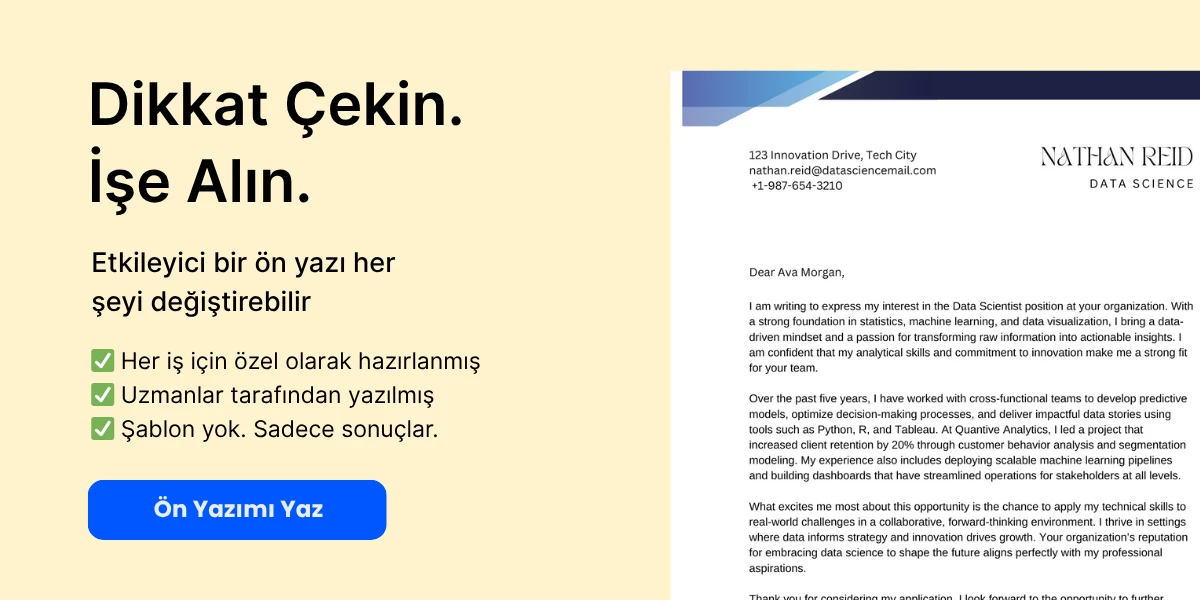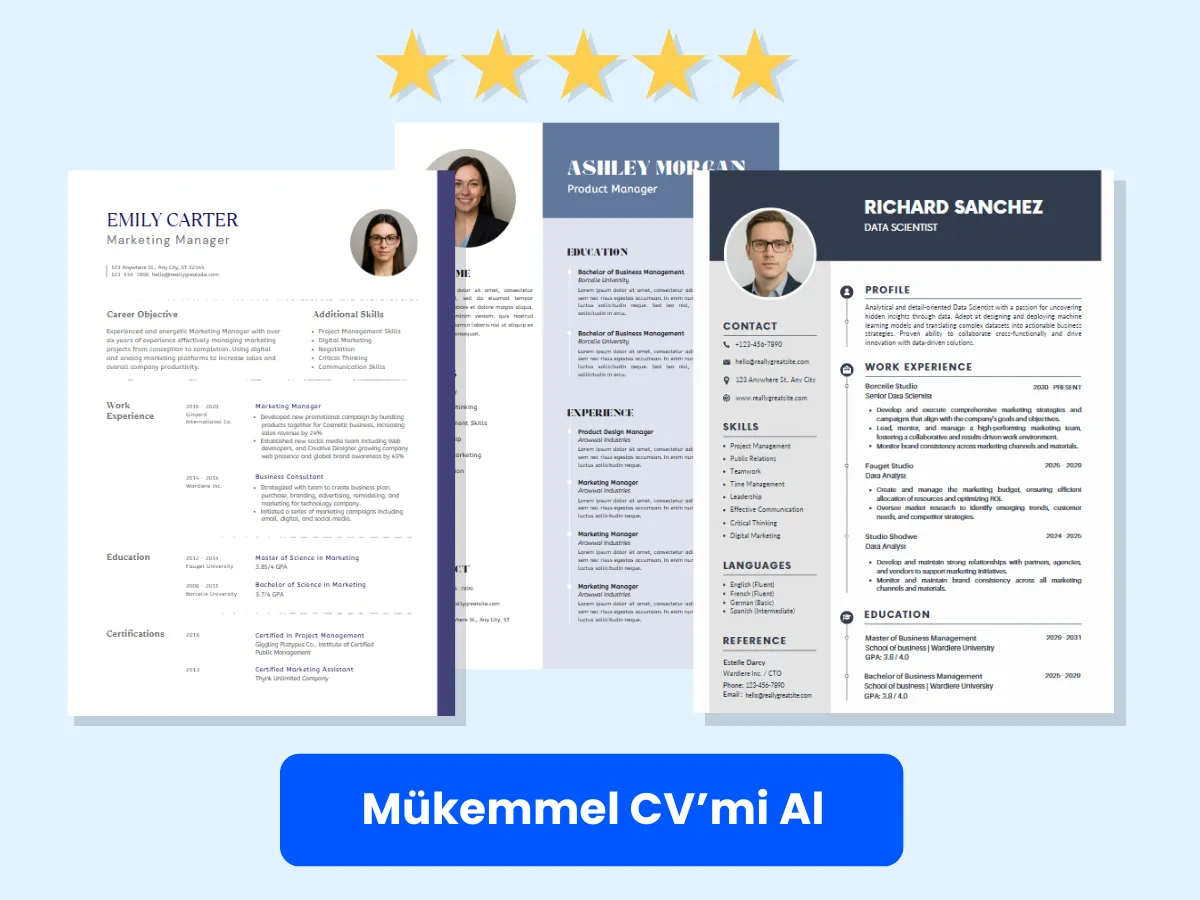Career planning is the process of mapping out your professional goals and the steps needed to achieve them. It involves evaluating your skills, interests, and values, and determining how they align with various career options. Career planning is a crucial aspect of professional development, as it allows individuals to make informed decisions about their career paths, and helps them navigate the job market with confidence.
Having a plan for your career is important for several reasons. Firstly, career planning can help you identify and pursue career opportunities that align with your goals and values. This can lead to greater job satisfaction, as you are more likely to be working in a field that you are passionate about. Additionally, having a clear career plan can give you a sense of direction and purpose, as you know what you are working towards and why.
Furthermore, career planning can help you develop a competitive edge in the job market. By identifying the skills and experiences you need to achieve your goals, you can take steps to acquire them, such as pursuing relevant education or training, or seeking out job opportunities that will help you gain necessary experience.
Career planning is an essential aspect of professional development. It can help individuals make informed decisions about their careers, find fulfilling opportunities, and achieve their goals. By taking the time to plan out your career path, you can set yourself up for success and take control of your professional life.
Reflecting on Your Career Goals
One of the keys to planning your career is taking the time to reflect on your career goals, and this starts with self-awareness and self-assessment. By understanding your strengths, weaknesses, and priorities, you can make better decisions about where you want to be in the future.


To begin, you need to define what success means to you. Too often, people get caught up in chasing someone else’s definition of success, which can lead to frustration and burnout. Take the time to think about what success means to you – is it achieving a certain salary or financial status? Is it doing work that you find meaningful? Is it having a good work-life balance?
Once you have a clear idea of what success looks like for you, it’s time to identify your strengths and weaknesses. This can be a difficult task, as it requires you to be honest with yourself about what you’re good at and what areas you need to improve on. One way to approach this is to think about the feedback you’ve received from others in the past. What do people usually compliment you on? What have they given you constructive feedback on?
Another way to identify your strengths and weaknesses is to focus on the things that energize you versus the things that drain you. Which tasks or projects do you look forward to? Which ones do you dread? By understanding your natural strengths and weaknesses, you can make more informed decisions about what jobs or career paths will play to your strengths.
Reflecting on your career goals requires self-awareness, defining what success means to you, and identifying your strengths and weaknesses. By taking the time to consider these factors, you can create a more strategic and fulfilling career plan.
Conducting Industry Research
One of the keys to planning a successful career is conducting thorough industry research. Understanding the latest industry trends and job market projections can help you make informed decisions about your career trajectory.
To get started, begin by seeking out reputable sources of industry insights, such as trade publications, industry associations, and market research firms. These sources can provide valuable information on emerging trends, innovations, and changes in the job market.


Another valuable tool for career planners is conducting informational interviews with professionals in their desired field. These conversations can provide a wealth of knowledge about industry-specific skills, certifications, and other qualifications that may be required for success. They can also offer insights into common career paths, salary ranges, and job satisfaction levels in various roles.
When evaluating industry-specific skills and certifications, it’s important to consider the needs of your target employers and the demands of your desired role. Research job postings and speak with professionals in your field to identify the most in-demand skills and certifications, and prioritize those when selecting training programs or pursuing further education.
In some cases, specialized certifications or credentials may be required for certain roles or industries. These can range from specific software certifications, to industry-specific credentials like those for Certified Public Accountants (CPAs) or Project Management Professionals (PMPs). Be sure to carefully research these requirements to ensure you are taking the necessary steps to achieve your career goals.
By taking the time to conduct thorough industry research, you can gain a deeper understanding of the job market and position yourself for success in your career. Whether you’re just starting out or looking to make a career change, industry research is a critical component of long-term career planning.
Setting SMART Career Goals
When it comes to planning your career, one of the most important things you can do is to set goals that are specific, measurable, attainable, relevant, and time-bound (SMART). Defining SMART goals will help you focus your efforts and make sure you’re making progress towards achieving the career you want.


Defining SMART Goals
Before you can set SMART goals, you need to understand what they are. Here’s what each component of SMART stands for:
- Specific: Your goal should be clear and well-defined.
- Measurable: You should be able to measure your progress towards your goal.
- Attainable: Your goal should be achievable with hard work and commitment.
- Relevant: Your goal should be relevant to your career aspirations.
- Time-bound: Your goal should have a specific deadline for completion.
By ensuring that your goals meet all of these criteria, you can be more confident that you’re setting yourself up for success.
Creating Short-Term and Long-Term Goals
Once you know what SMART goals are, it’s time to start setting them. One useful approach is to create both short-term and long-term goals.
Short-term goals are typically those that can be achieved within the next year. They might include things like attending a conference to network with peers in your industry, completing a course or certification program to enhance your skills, or taking on a new project or responsibility at work. These goals will help you build momentum and make steady progress towards your ultimate career objectives.
Long-term goals, on the other hand, are more far-reaching and may take several years to achieve. Examples of long-term goals might include obtaining a particular job title, starting your own business, or achieving a certain level of income. These goals will help you stay motivated and focused on the big picture.
Developing Action Plans
Once you’ve set your SMART goals, you need to develop action plans to help you achieve them. An action plan is a step-by-step guide for how you’ll make progress towards your goals.
Begin by breaking down each goal into smaller, more manageable tasks. Determine what resources you’ll need to accomplish each task, and assign deadlines for completing them. Be sure to track your progress along the way so that you can course-correct if necessary.


In addition to outlining specific action steps, your action plan should also include potential obstacles and strategies for overcoming them. For example, if you’re working towards a certification and you’re struggling to find time to study, your action plan might include solutions such as setting aside specific times for study each week or hiring a tutor to help keep you on track.
Ultimately, developing sound action plans will help ensure that you’re making steady progress towards your career goals, so take the time to create detailed plans that are well-suited to your needs and objectives.
Setting SMART career goals is crucial to planning your career effectively.
Developing Your Professional Brand
As you progress in your career, it’s important to develop a professional brand that sets you apart from others in your field. This can be achieved through crafting a compelling elevator pitch, building a strong online presence, and developing a personal brand story.


Crafting a Compelling Elevator Pitch
Your elevator pitch is a brief introduction that outlines who you are and what you do. It should be concise and attention-grabbing, while also highlighting your unique skills and experiences. Keep in mind that your pitch should be adaptable for different situations, such as networking events, job interviews, or even casual encounters.
Building a Strong Online Presence
In today’s digital age, having a strong online presence is essential. Utilize social media and networking sites such as LinkedIn, Twitter, and Instagram to showcase your skills and experiences. Take care to maintain a professional image, and consider using your social media accounts to share industry-related news and insights.
Developing a Personal Brand Story
A personal brand story is a compelling narrative that communicates your unique values and experiences. It should be authentic and showcase the qualities that set you apart from others in your field. Your brand story can incorporate a variety of elements, such as your career journey, your passions, and your personal values.
By developing a professional brand through crafting a compelling elevator pitch, building a strong online presence, and developing a personal brand story, you can establish yourself as a reputable and valuable contributor in your field.
Building Your Network
One of the most critical aspects of planning your career is building a robust professional network. Whether you’re starting at the beginning or transitioning to a new role, your network can help you find opportunities, learn new skills, and stay up to date with industry trends.
Networking Best Practices
When it comes to networking, it’s critical to have a clear strategy in mind. Some of the best networking practices include:


-
Being proactive: Reach out to people you admire and respect in your industry, and ask them to connect on LinkedIn, or schedule a coffee meeting to learn more about their experiences.
-
Being authentic: Don’t just focus on what you can get out of your connections. Instead, build honest relationships based on mutual respect and shared interests.
-
Being patient: Building strong relationships takes time, so don’t expect instant results. Instead, focus on building a network of trusted connections over time.
Finding and Attending Industry Events and Conferences
Attending industry events and conferences is an excellent way to expand your network and learn about new trends and opportunities in your field. Here are some tips to help you make the most of these events:


-
Do your research: Before attending an event, research the speakers, sponsors, and attendees. This will help you identify key people to connect with and topics you want to learn more about.
-
Be present: During the event, make an effort to be present and engaged. Ask thoughtful questions, participate in discussions, and take notes.
-
Follow up: After the event, follow up with the people you met. This could be as simple as sending a LinkedIn request or a quick email to say thank you for the conversation.
Leveraging Social Media for Professional Networking
Social media is an incredibly powerful tool for building your professional network. Here are some tips to help you make the most of social media for networking:
-
Choose the right platforms: Different platforms appeal to different industries and audiences. For example, LinkedIn is an excellent platform for professional networking, while Instagram is more visual and creative.
-
Engage authentically: Don’t just connect and forget about your contacts. Engage with them by commenting on their posts, liking their updates, and sharing relevant content.
-
Join groups and discussions: Many social media platforms have groups and discussions focused on specific industries or topics. Join these groups and participate in discussions to connect with like-minded professionals.
Building a strong professional network is critical to planning your career. By following these best practices for networking, attending industry events and conferences, and leveraging social media, you can expand your horizon and connect with people who can help you achieve your goals.
Enhancing Your Skill Set
One of the keys to long-term career success is constantly improving one’s skill set. As the job market evolves, so must job seekers. Here are three ways to enhance your skill set:
Identifying and Developing New Skills
The first step to enhancing your skill set is to take a good look at your current abilities and identify any gaps that may be holding you back. Once these gaps have been identified, you can take steps to develop new skills. This could involve anything from enrolling in a course or training program to seeking out a mentor who can help you learn new techniques or approaches. Don’t be afraid to step outside your comfort zone and explore new areas of expertise.
Pursuing Educational Opportunities
In addition to developing new skills, pursuing educational opportunities is another great way to enhance your professional prospects. Whether this means going back to school to earn a degree or simply attending a workshop or seminar, there are numerous educational resources available to help you grow your knowledge and expertise. When considering educational opportunities, it’s important to think about your long-term career goals and choose programs that will help you achieve them.
Taking on New Projects to Gain Experience
Finally, another effective way to enhance your skill set is to take on new projects that allow you to gain experience in different areas. This could involve volunteering for projects within your current organization or working on freelance opportunities outside of work. By taking on new projects, you’ll be able to develop new skills and gain valuable experience that will make you a more attractive candidate for future job opportunities.
Continuously enhancing your skill set is vital to achieving long-term professional success. Whether by developing new skills, pursuing educational opportunities, or taking on new projects, there are numerous ways to continue growing as a professional. So start planning your career by setting goals and taking proactive steps to enhance your skill set today!
Finding a Mentor
A mentor is a valuable asset for anyone looking to plan their career. They can provide invaluable guidance and support, helping you identify your goals and achieve them. In this section, we will discuss how to find a mentor, build a relationship with them, and explore the benefits of having a mentor.
Identifying a mentor
Before you can build a relationship with a mentor, you need to find one. Consider the people in your industry who have achieved the level of success you aspire to. Reach out to them and express your interest in their work. Attend industry events and volunteer to work on projects with people you admire. Look for people who share your values and are willing to invest their time and energy in helping you succeed.
Building a relationship with your mentor
Once you have identified a potential mentor, it’s essential to build a strong relationship with them. Start by being respectful of their time and their expertise. Be open with them about your goals and desires, and listen carefully to their feedback and advice. Communication is key to building a strong mentor-mentee relationship, so schedule regular check-ins and be responsive to their feedback and suggestions.
Benefits of having a mentor
There are numerous benefits to having a mentor. Mentors can provide guidance and support, help you identify your strengths and weaknesses, and offer insights into the industry you’re working in. They can also introduce you to valuable connections and offer opportunities for personal and professional growth.
Having a mentor can be a valuable tool for any career planner. By following these steps to identify and build a relationship with a mentor, you can gain valuable insights and guidance to help you achieve your career goals.
Overcoming Career Obstacles
No matter how much effort you put into planning your career, you are likely to encounter obstacles on your journey. The good news is that with a few simple strategies, you can overcome these hurdles and achieve success in your career.
Identifying Common Obstacles to Career Success
The first step in overcoming career obstacles is to identify what they are. Here are some common obstacles that many professionals face:
-
Lack of skills: This is one of the most significant obstacles many people face in their careers. Without the skills necessary to perform a job successfully, it can be challenging to advance.
-
Poor communication: Many professionals struggle with communication, whether it’s communicating their ideas effectively or understanding what others are saying.
-
Limited networking: Networking is a crucial component of career success. However, if you lack the right connections, it can be challenging to get ahead.
-
Workplace conflicts: If you don’t get along with your colleagues or bosses, it can be challenging to work productively.
Developing Strategies to Overcome Obstacles
Once you have identified the obstacles, the next step is to develop strategies to overcome them. Here are some tips to consider:
-
Improve your skills: If you lack the skills needed to advance in your career, consider investing in additional education or training.
-
Practice effective communication: To improve your communication skills, practice active listening, and work on articulating your thoughts and ideas more clearly.
-
Network: Attend industry events and seek out opportunities to connect with others in your field.
-
Conflict resolution: If you are experiencing workplace conflict, try to approach the situation calmly and professionally. Seek guidance from a trusted mentor or human resources professional if necessary.
Maintaining a Positive Mindset and Attitude
Finally, maintaining a positive mindset and attitude is crucial in overcoming career obstacles. Here are some ways to keep your spirits up:
-
Stay focused on your goals: Remember why you are pursuing your career in the first place and stay focused on your long-term goals.
-
Learn from failure: Failure is a natural part of the learning process. Instead of dwelling on mistakes, use them as an opportunity to improve.
-
Seek out support: Build a network of supportive colleagues, mentors, and friends to help you stay motivated and positive.
With these strategies in mind, you can overcome obstacles in your career and achieve success. By developing your skills, improving your communication, and maintaining a positive attitude, you’re on your way to a fulfilling and satisfying career.
Navigating Career Transitions
As professionals, we go through several phases in our careers. However, sometimes, we may realize that our current job or profession doesn’t align with our long-term goals. In such situations, a career transition may be the right solution. But, before making any move, it’s essential to prepare adequately.
Preparing for a career transition
Before starting a career transition, the first step is to assess your current situation. Identify the skills you have, what motivates you, and what you want out of your next career move. Once you understand your goals and aspirations, evaluate the market and identify the industries that align with your interests and core competencies.
Evaluating the risks and benefits of switching careers
When switching careers, it’s crucial to evaluate the potential risks and benefits. Consider the impact on your finances, your emotional well-being, and your long-term career goals. Depending on how significant the transition is, you may need to invest in additional education or training. Take time to research your options and assess your comfort level with the risks involved.
Adapting to a new work environment
Transitioning to a new career can be daunting, especially when adapting to a new work environment. Begin by learning about the new company culture, the work processes, and the expectations. Reach out to peers in the organization and build relationships. Embrace change by focusing on the opportunities it presents, such as gaining new skills and meeting new people.
Transitioning to a new career can be a fulfilling experience if properly planned. Preparing for the transition, evaluating the risks and benefits, and adapting to a new work environment are critical steps towards a successful career change. Keep in mind that change is hard, but with the right mindset, resources, and support, you can achieve your long-term career goals.
Measuring Your Success
In any journey, measuring progress is essential to ensure that you are moving in the right direction. The same holds for your career. Measuring your success is essential not only to assess how far you have come but also to determine what you need to do next to achieve the goals you have set for yourself. In this section, we’ll discuss three critical aspects of measuring your success, including defining success metrics, assessing progress against goals, and making adjustments as needed.
Defining Success Metrics
Success metrics are the quantitative or qualitative measurements that you use to assess how well you are doing. Without well-defined success metrics, it’s challenging to measure your progress accurately. It’s crucial to make sure that your metrics align with your goals and aspirations. If you are not clear on what you want to achieve, it’s impossible to know if you have succeeded or failed.
To define your success metrics, start by asking yourself what you want to accomplish. What do your goals look like? What are the essential milestones along the way? Once you have a clear idea of what you want, you can start to identify the metrics that will help you measure your progress.
For instance, if you are aiming for a promotion, your success metrics may include the number of projects you have led or the revenue you have generated. Similarly, if you want to transition into a new career path, your success metrics may include the number of courses you have completed or the number of new skills you have acquired.
Assessing Progress Against Goals
Once you have established your success metrics, it’s essential to use them to evaluate your progress. Regularly assessing your progress against your goals helps you stay on track and adjust your approach as needed. It also helps you identify areas where you may be falling short, allowing you to take corrective action before things get out of hand.
To assess your progress against your goals, you’ll need to gather data based on your success metrics. Depending on your goals, this data may come from a variety of sources, including your work output, performance evaluations, and feedback from colleagues and mentors. You’ll then need to analyze this data to see if you are hitting your targets.
It’s important to note that assessing your progress should not be a one-time event. You should regularly review your progress, ideally every quarter or annually, and make adjustments as needed. This way, you can ensure that you are still on course and take corrective action when necessary.
Making Adjustments as Needed
Measuring your success is not just about identifying areas where you are doing well. It’s also about identifying areas where you need to improve and taking corrective action. If you are falling short of your goals or benchmarks, it’s crucial to determine why and take corrective action.
For example, if you are not generating as much revenue as you should be, you may need to re-evaluate your sales approach or seek additional training.








